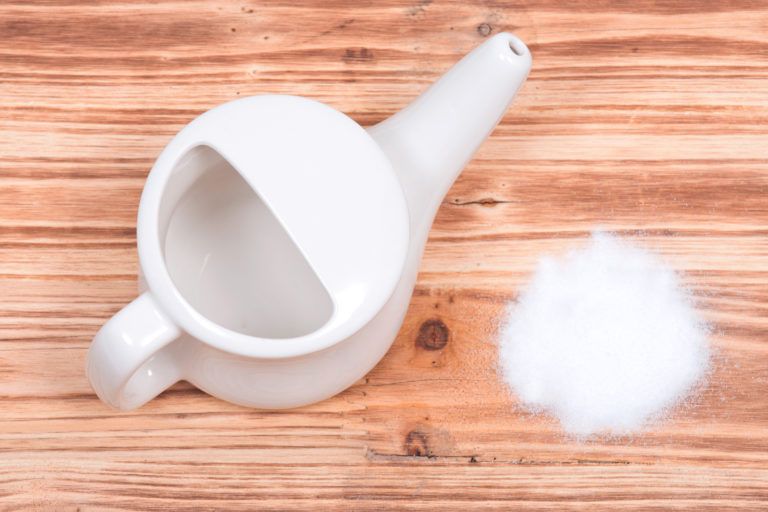
Quick Tips
- Nasal irrigation (saltwater wash, lavage?etc).
- Neti pot.
- Steaming.
- Humidifier.
- Decongestants with NSAIDs.
- Antihistamines.
I’ve battled with severe allergies and sinus issues since childhood. I know that being able to breathe clearly and freely can make a huge difference in your mood, energy, and outlook. At times, I felt like retiring into a bubble (literally) and giving up. But I did not. In the war for a clean nose, I have tried just about everything, from a strict regimen of prescription pills and allergy shots to herbal teas and natural remedies.
What the course of allergy shots (immune therapy) didn’t get rid of, I’ve learned to handle. I can’t speak on medical treatments; I’m not a doctor. However, most of the effective methods I’ve used to keep my nose clean are natural or do not require a prescription. I hope this article will help you breathe a little easier.
Clean Nose Strategies
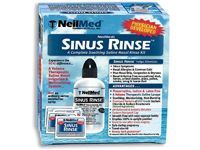 Nasal irrigation (saltwater wash, lavage…etc). Nasal irrigation is quickly becoming the most popular way to clean your nose and sinuses, and there is a growing body of evidence to support this practice. With this nose cleaning method, you flush out your sinuses using saline – a mixture of water and salt. Saline is an “isotonic” liquid – it has the same PH, the same saltiness as your body fluids, so it won’t cause irritation. This solution will clean out mucus, bacteria, germs, dirt, dust, and allergens, giving your nose a chance to recuperate and regain balance. If “irrigation seems a bit much for you, try a saline nasal spray, which will also gently loosen things up.
Nasal irrigation (saltwater wash, lavage…etc). Nasal irrigation is quickly becoming the most popular way to clean your nose and sinuses, and there is a growing body of evidence to support this practice. With this nose cleaning method, you flush out your sinuses using saline – a mixture of water and salt. Saline is an “isotonic” liquid – it has the same PH, the same saltiness as your body fluids, so it won’t cause irritation. This solution will clean out mucus, bacteria, germs, dirt, dust, and allergens, giving your nose a chance to recuperate and regain balance. If “irrigation seems a bit much for you, try a saline nasal spray, which will also gently loosen things up. Neti pot. Using a neti pot is my preferred method of nasal irrigation because it’s gentle and involves a quaint teapot-like device (under $20). You can buy neti pot solutions in drug stores, but it’s easy to make your own at home. Mix ¼ tsp of organic sea salt (non-iodized) in one cup of warm, distilled water. You can buy bottled water, or bring tap water to a boil and let it cool. Many people use neti pots to get through allergy season or colds, while others use neti pots all year around. I advise talking to your doctor before starting any long-term treatment.
Neti pot. Using a neti pot is my preferred method of nasal irrigation because it’s gentle and involves a quaint teapot-like device (under $20). You can buy neti pot solutions in drug stores, but it’s easy to make your own at home. Mix ¼ tsp of organic sea salt (non-iodized) in one cup of warm, distilled water. You can buy bottled water, or bring tap water to a boil and let it cool. Many people use neti pots to get through allergy season or colds, while others use neti pots all year around. I advise talking to your doctor before starting any long-term treatment.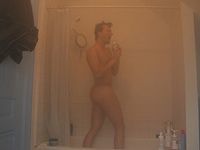 Steaming. The heat and moisture provided by steam will work to clean your nose and sinuses. Boil 5-7 cups of water. Put a towel over your head and the pot or kettle. Breathe in the steam through your nose as best you can for 15 minutes, 3-4 times daily. The heat will dilate blood vessels, which will protect against infection. The moisture will get the mucus moving towards the exit. Be careful when steaming – it can cause burns if too hot. Many people prefer to steam in the shower (moisturize!) or sitting next to the shower.
Steaming. The heat and moisture provided by steam will work to clean your nose and sinuses. Boil 5-7 cups of water. Put a towel over your head and the pot or kettle. Breathe in the steam through your nose as best you can for 15 minutes, 3-4 times daily. The heat will dilate blood vessels, which will protect against infection. The moisture will get the mucus moving towards the exit. Be careful when steaming – it can cause burns if too hot. Many people prefer to steam in the shower (moisturize!) or sitting next to the shower.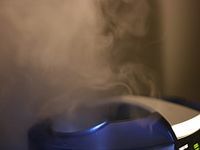 Humidifier. If you live in an excessively dry or cold climate, a humidifier may be all you need to clean your nose. Dryness irritates nasal passages and hardens mucus, phlegm, snot – all of that stuff you once ate for money in elementary school. It will stop moving and build up. With all the germs, pollen, and debris stuck in your sinuses, you’re begging for inflammation and infection. It is vitally important to keep humidifiers clean, lest they start blasting mold spores or allergens into the air. It is also important not to go too far. Your home should be at a humidity level between 30 – 50 percent. Either buy a hygrometer (at any hardware store) or a humidifier with a built-in hygrometer.
Humidifier. If you live in an excessively dry or cold climate, a humidifier may be all you need to clean your nose. Dryness irritates nasal passages and hardens mucus, phlegm, snot – all of that stuff you once ate for money in elementary school. It will stop moving and build up. With all the germs, pollen, and debris stuck in your sinuses, you’re begging for inflammation and infection. It is vitally important to keep humidifiers clean, lest they start blasting mold spores or allergens into the air. It is also important not to go too far. Your home should be at a humidity level between 30 – 50 percent. Either buy a hygrometer (at any hardware store) or a humidifier with a built-in hygrometer.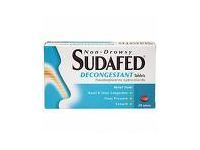 Decongestants with NSAIDs. These OTC medications can be used to clean your nose of goblins and slime. Decongestants, which can be taken orally or via nasal spray, work by reducing the swelling in your nasal cavity. When taken with a NSAID (non-steroidal anti-inflammatory drug) such as Ibuprofen, the swelling should go down enough for normal drainage to occur. Never use decongestants for more than 3 – 4 days at a time. Overuse of nasal sprays or oral decongestants will cause irritation and a more profound congestion called “congestion rebound”. It can also lead to lack of sleep, as decongestants are pretty strong stimulants.
Decongestants with NSAIDs. These OTC medications can be used to clean your nose of goblins and slime. Decongestants, which can be taken orally or via nasal spray, work by reducing the swelling in your nasal cavity. When taken with a NSAID (non-steroidal anti-inflammatory drug) such as Ibuprofen, the swelling should go down enough for normal drainage to occur. Never use decongestants for more than 3 – 4 days at a time. Overuse of nasal sprays or oral decongestants will cause irritation and a more profound congestion called “congestion rebound”. It can also lead to lack of sleep, as decongestants are pretty strong stimulants.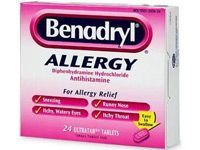 Antihistamines. Antihistamines come in handy when the mucus isn’t thick and stuck, but thin and runny. Though far more often used for allergies, they have gotten me through colds as well. If antihistamines aren’t working for you, perhaps you’re not using the right ones. The older, first generation antihistamines (Benadryl, Chlor-Trimeton) have always worked better for me than daytime stuff (Claritin). Yes, they make you tired and perhaps hazardous behind the wheel, but I’ve always preferred that to splashing snot all over myself and my work.
Antihistamines. Antihistamines come in handy when the mucus isn’t thick and stuck, but thin and runny. Though far more often used for allergies, they have gotten me through colds as well. If antihistamines aren’t working for you, perhaps you’re not using the right ones. The older, first generation antihistamines (Benadryl, Chlor-Trimeton) have always worked better for me than daytime stuff (Claritin). Yes, they make you tired and perhaps hazardous behind the wheel, but I’ve always preferred that to splashing snot all over myself and my work.
Medical Treatments for Congestion
If nothing seems to work, bite the bullet and go to the doctor. If you’re suffering from allergies, they will undoubtedly give you a stronger, second generation antihistamine (Allegra, Zyrtec) and perhaps a nasal spray corticosteroid. Be patient with your doctor and give them plenty of feedback on your progress. It can take time to find the right treatment. You may even end up going through a course of immune therapy shots.
But not all congestion comes from allergies. You may be dealing with acute or chronic sinusitis. In that case you’ll be prescribed corticosteroids paired with antibiotics or an antifungal medication. Another great reason to visit that doctor is that your anatomy may be causing congestion. I have a common problem called a deviated septum. I was born with it, but some earn it with a blow to the face. Either way, I get very little air flow through one nostril. For this, and for other sinus abnormalities such as nasal polyps, there is surgery.
Tips to Keep Your Nose Clean
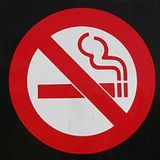 Stop smoking. It is hard to keep your nose clean around a smoker. Smoke irritates the sinus lining and causes swelling of the sinus membranes, which in turn leads to chronic sinusitis. There are more quit aids and support than ever before. If someone in your proximity is the culprit, let them know you are suffering. Set boundaries on their habit.
Stop smoking. It is hard to keep your nose clean around a smoker. Smoke irritates the sinus lining and causes swelling of the sinus membranes, which in turn leads to chronic sinusitis. There are more quit aids and support than ever before. If someone in your proximity is the culprit, let them know you are suffering. Set boundaries on their habit.
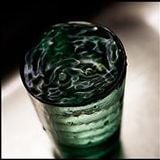 Fluids. Staying well hydrated will help keep your nose clean. Getting enough fluids will have a thinning effect on mucus, which should prevent blockage and allow for natural drainage. Booze doesn’t count, nor do caffeinated drinks – both have a dehydrating effect. Booze in particular has a drying, irritating effect as it constricts blood vessels. This is why people tend to sound nasal after a night of depravity.
Fluids. Staying well hydrated will help keep your nose clean. Getting enough fluids will have a thinning effect on mucus, which should prevent blockage and allow for natural drainage. Booze doesn’t count, nor do caffeinated drinks – both have a dehydrating effect. Booze in particular has a drying, irritating effect as it constricts blood vessels. This is why people tend to sound nasal after a night of depravity.
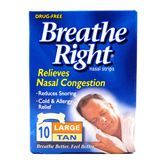 Use breathing strips. If you suffer from congestion on a regular basis, you probably snore, and this is something you should try to avoid. No, not because it makes your significant other fantasize about using her pillow to kill you. Snoring, we now know, puts the snoree at an elevated risk for stroke and heart failure. These silly looking strips have helped me to look dorky…and quit snoring.
Use breathing strips. If you suffer from congestion on a regular basis, you probably snore, and this is something you should try to avoid. No, not because it makes your significant other fantasize about using her pillow to kill you. Snoring, we now know, puts the snoree at an elevated risk for stroke and heart failure. These silly looking strips have helped me to look dorky…and quit snoring.
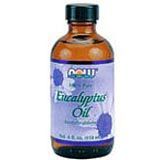 Try eucalyptus oil. Can essential oils be used to clean your nose? Sure. If you’re not keen on gobbling down antihistamines and decongestants, this may be for you. You can rub the oil on your chest before bed, or you can add a few drops of oil to boiling water to inhale it through steam. You can even add it to your humidifier or vaporizer, some of which come with special compartments for essential oils. If it helps you sleep, cleans your nose, and prevents your partner from sleep-murdering you, it may be worth it. You can get a bottle of Body Wonders Eucalyptus Oil from Amazon.
Try eucalyptus oil. Can essential oils be used to clean your nose? Sure. If you’re not keen on gobbling down antihistamines and decongestants, this may be for you. You can rub the oil on your chest before bed, or you can add a few drops of oil to boiling water to inhale it through steam. You can even add it to your humidifier or vaporizer, some of which come with special compartments for essential oils. If it helps you sleep, cleans your nose, and prevents your partner from sleep-murdering you, it may be worth it. You can get a bottle of Body Wonders Eucalyptus Oil from Amazon.